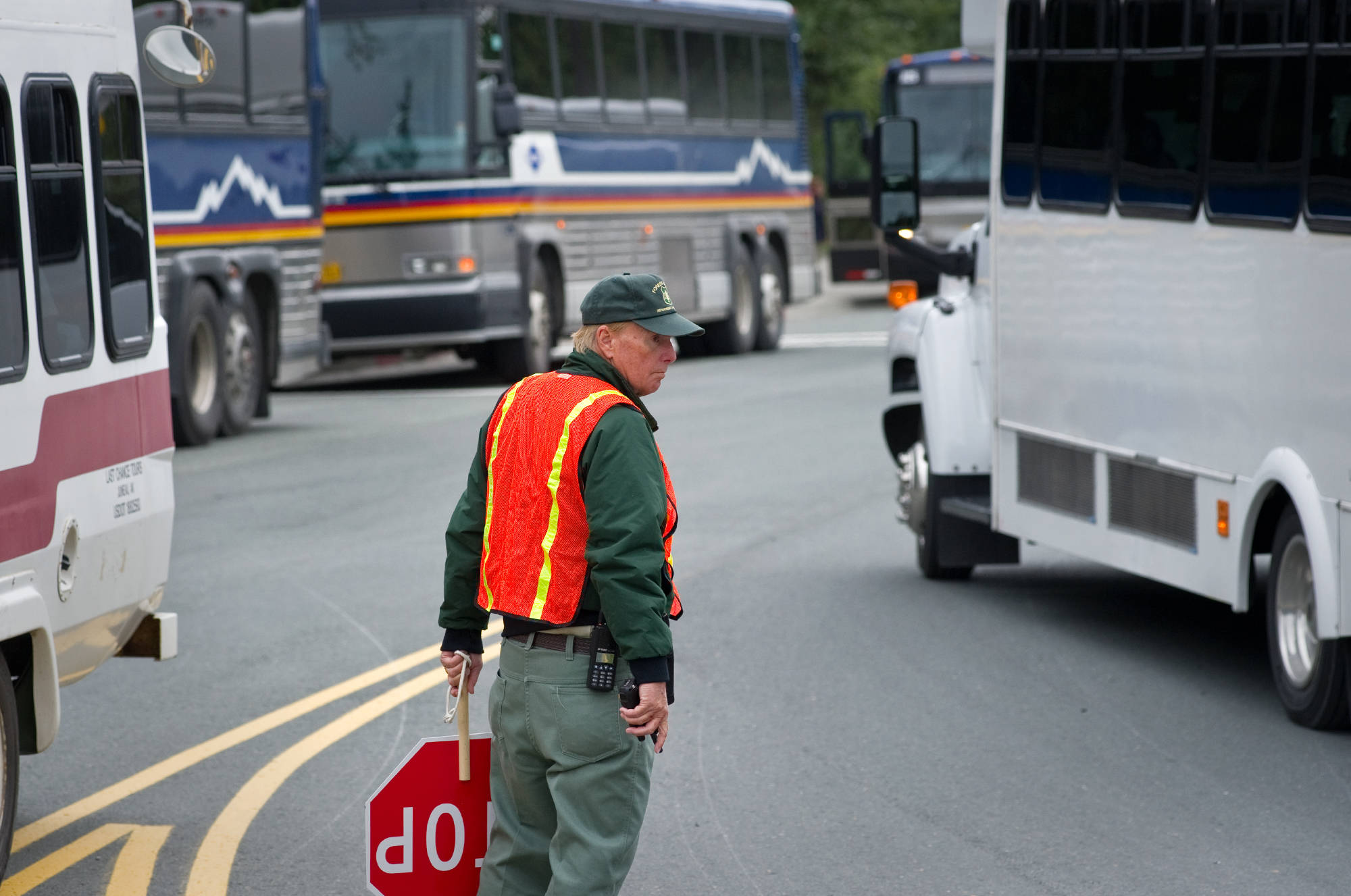Juneau’s fleet of buses will likely remain primarily diesel-fueled for the next few years.
The City and Borough of Juneau Assembly voted to allocate grant funding from the Federal Transit Authority (FTA) for the purchase of six diesel buses to replace aging buses on the Capital Transit fleet.
The Assembly members discussed at length about whether they could or should find a way to replace some of those diesel buses with electric vehicles. One of the seven buses in need of replacement will already be replaced by an electric bus next year, as Streets, Fleet and Transit Superintendent Ed Foster said Monday.
The main issue that had Assembly members concerned was that this is likely the last time that the city will be able to secure grants from the FTA until 2021.
Foster explained that the reason that Capital Transit is currently eligible for these grants is that Capital Transit can currently prove that it has buses in need of replacing. The buses that are being replaced have logged more than half a million miles, which Foster said puts them near the end of their life cycle. There won’t be buses near the end of their life cycles until 2021, Foster said, and he said it would be tough to prove to the FTA a need to update the fleet until that point.
There were two ordinances on the table, one that would replace buses next year and one that would replace buses the year after that. The Assembly needed to vote on these now, or else grant funding wouldn’t be there, Foster said.
Assembly member Jesse Kiehl was worried about committing to sticking with mostly diesel buses for at least the next four years. With transportation technology developing so quickly, Kiehl compared this decision to committing to buying a cellphone that will be out of date in four years.
“I just can’t support locking in next year’s buses on diesel again and not opening the window until 2021,” Kiehl said.
Foster answered a variety of questions from Assembly members, including Maria Gladziszewski’s question about whether the city could use the grant money for electric vehicles instead of diesel. Foster said electric buses are about twice as expensive as diesel buses, so using the money for electric buses wouldn’t get enough buses to replace the aging vehicles.
“Right now I have three buses that have over 600,000 miles on them that have been on the road for 14 years and I have mechanics who are working their butts off to keep them on the road,” Foster said, “and I’ve got four more that I’m trying to replace next year that are right on their heels, over 500,00 miles and they’ve been on the road for 12 years.”
With Foster’s explanation, the Assembly members agreed that the need is too severe to risk not approving the funding for the diesel buses. The ordinance for replacing buses next year passed unanimously, while the second ordinance (replacing buses in 2018) passed by a vote of 7-2. Kiehl and Gladziszewski voted against it.
There’s a chance, Foster said, that Capital Transit could earn an FTA grant in the next four years, but he wasn’t optimistic.
“I’m not saying we can’t apply for FTA grant money between now and 2021,” Foster said, “but the state (Department of Transportation and Public Works) has a bucket of money that they have to spread out across all the rural transit systems and it depends on how critical our need is versus other communities.”
• Contact reporter Alex McCarthy at 523-2271 or alex.mccarthy@juneauempire.com.

